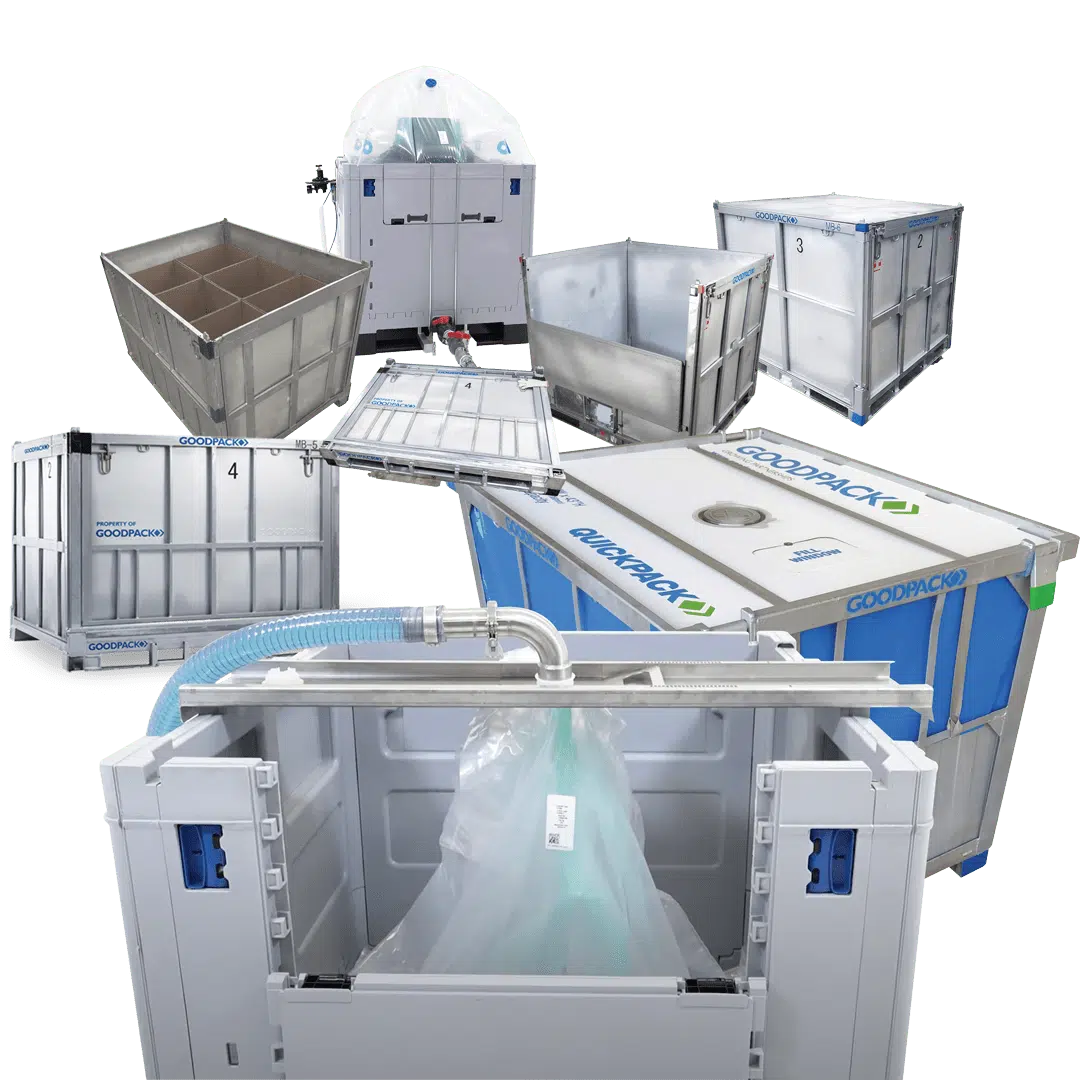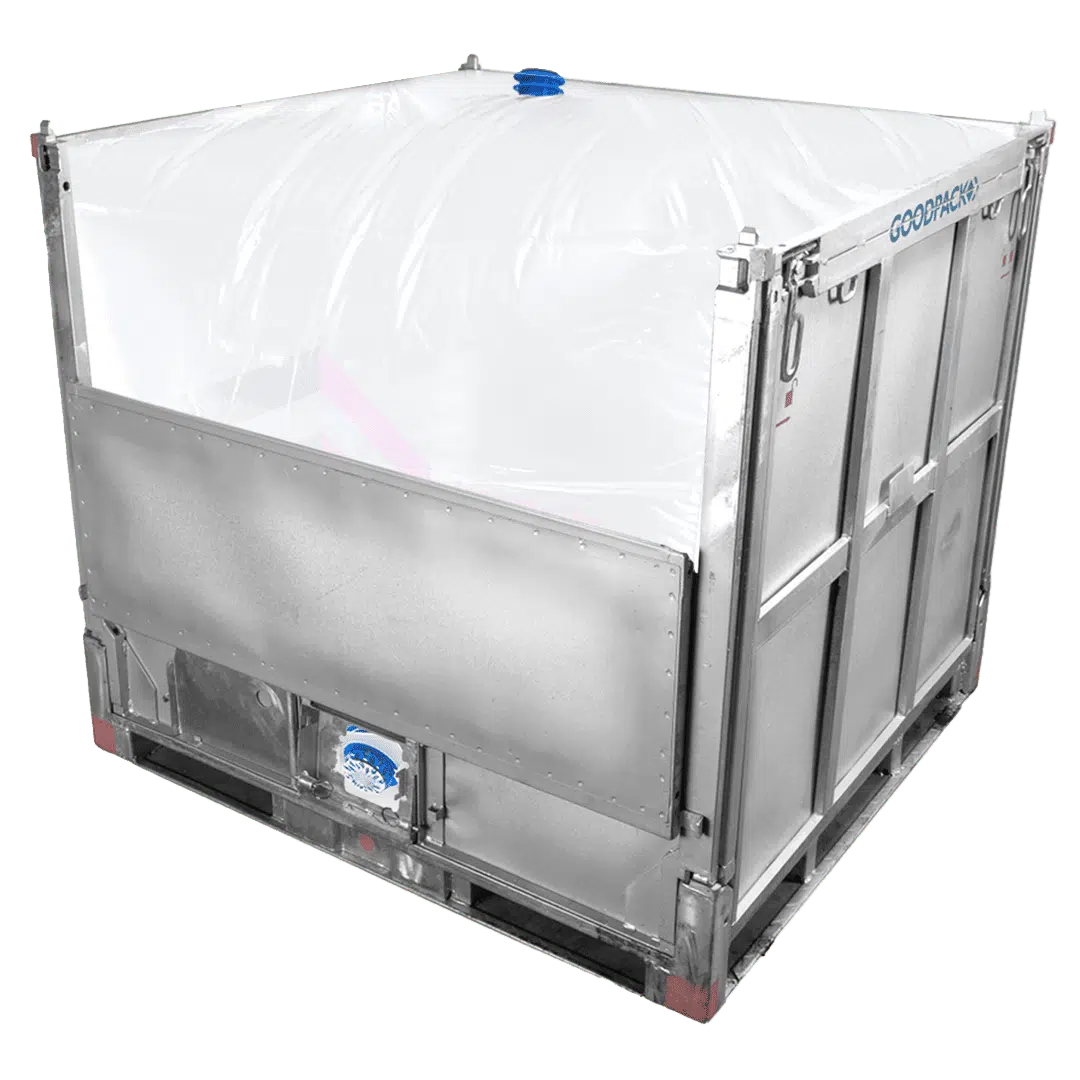Intermediate bulk containers (IBCs) are essential for storing and transporting large volumes of liquids, semi-solids, and powders across various industries. Their versatility, stackable design, and compatibility with liners make them a preferred choice for businesses looking for efficient bulk liquid packaging solutions. But what are the different types of IBC totes, and how do you know which one is right for your operation?
Understanding the varieties of IBCs and their compatible liners, such as IBC liners, liquid tote liners, and intermediate bulk container liners, is critical for maintaining product integrity, improving workflow, and ensuring safety.

Rigid Plastic IBCs
Rigid plastic IBCs are among the most common types used today. They feature a high-density polyethylene (HDPE) inner tank encased in a protective metal or plastic cage.
Key Features:
- Durable and lightweight for transport.
- Stackable design for efficient storage.
- Compatible with IBC liner bags and IBC tank liners for hygienic handling.
These IBCs are ideal for food, beverage, pharmaceutical, and chemical industries, especially when paired with industrial IBC liners to prevent contamination.
Collapsible or Foldable IBCs
Collapsible IBCs are designed to reduce storage space when not in use. They can be folded down once emptied, making them ideal for operations with limited warehouse space or for return logistics.
Key Features:
- Space-saving during storage or shipping.
- Reusable with proper cleaning and maintenance.
- Compatible with bulk liners and liquid bulk container liners for safe product handling.
These containers are especially useful for companies that ship products back and forth, minimizing transportation costs.
Stainless Steel IBCs
Stainless steel IBCs are perfect for high-purity or corrosive liquids. Their resistance to chemical reactions and easy-to-clean surfaces make them ideal for pharmaceuticals, specialty chemicals, and food-grade applications.
Key Features:
- Highly durable and corrosion-resistant.
- Can withstand extreme temperatures.
- Compatible with IBC tote liners for sale for additional hygiene and protection.
Stainless steel IBCs are often paired with barrier liners from intermediate bulk container liners collections to protect sensitive liquids from contamination.
Composite IBCs
Composite IBCs combine the advantages of plastic and metal. Typically, these containers have an HDPE inner tank with an external metal cage. They are widely used because they balance cost, durability, and safety.
Key Features:
- Strong yet cost-effective.
- Suitable for stacking and transport.
- Works with liquid tote liners and IBC liner bags for optimized liquid handling.
These containers are versatile and can handle food products, chemicals, or industrial liquids efficiently.
Specialty IBCs
Some industries require IBCs designed for unique applications. Specialty IBCs may include features like temperature control, anti-static protection, or high-viscosity handling.
Key Features:
- Custom designs for unique liquids or operational requirements.
- Often used with industrial IBC liners or specialized bulk liners.
- Ideal for pharmaceuticals, adhesives, resins, and sensitive chemicals.
Specialty IBCs ensure that even the most challenging liquids are transported and stored safely without compromising product quality.
Pairing IBCs with Liners
The type of IBC container is only one part of the equation. Using the right IBC liner bag or liquid bulk container liner ensures product protection, simplifies handling, and minimizes cleaning requirements.
For example:
- Pillow-style liners work well in standard plastic IBCs for beverages or sauces.
- Form-fit liners are ideal for high-viscosity products like adhesives or gels.
- Barrier liners protect sensitive products from oxygen, moisture, and UV exposure.
For more information on liner types and applications, see Different Types Of IBC Liners And Their Common Applications.

Applications Across Industries
IBC totes, when paired with the right liners, are used across a wide range of sectors:
- Food and Beverage: Juices, syrups, oils, sauces.
- Pharmaceuticals: Sterile solutions, liquid medicines, active ingredients.
- Chemicals: Solvents, detergents, adhesives, acids.
- Industrial Products: Paints, resins, lubricants.
Choosing the correct IBC type and bulk liners ensures that products remain uncontaminated, safe, and compliant with industry regulations during storage and transport.
For a comprehensive overview of IBC types, liner options, and best practices, check out The Ultimate Guide To IBC Liners And Bulk Liquid Packaging. This resource provides detailed insights on container-liner combinations that optimize efficiency, safety, and cost-effectiveness in liquid handling operations.
Selecting the right IBC tote depends on your product, industry requirements, and operational needs. From rigid plastic and collapsible containers to stainless steel and specialty IBCs, each type offers unique advantages.
Pairing the correct container with intermediate bulk container liners, IBC tank liners, or other liquid tote liners ensures hygienic handling, minimizes downtime, and maximizes product protection. Whether handling food-grade liquids, industrial chemicals, or high-viscosity substances, the right IBC and liner combination is essential for efficient and safe operations.
Need guidance on choosing the best IBC tote and liner for your operation?
Call 815-963-9525 today to speak with Innovative Liner Solutions. Our team can help you select the right IBC liners and containers to optimize your bulk liquid packaging needs.

